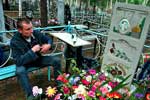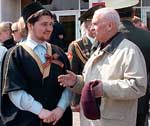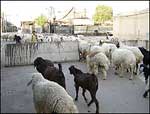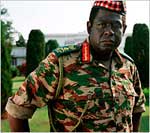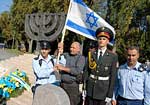The Daily Sun, Nigeria’s King of the Tabloids:
However, narrating his own side of the story, Alhaji Mustapha told Daily Sun that he brought his children to the witchdoctor when he noticed their poor performance in their school work.
“I brought them to her for assistance when I noticed that their academic performance was unimpressive. The woman told me that they were witches responsible for my current travail.
“She actually locked them up in one room, chained their hands with wire for seven days and fed them once a day. She flogged them for seven days, claiming that she was exorcising their witchcraft powers.”
Alhaji Mustapha claimed that he had been rendered powerless spiritually by the witchdoctor; I could not do anything to save my children,” he said.
Here.



